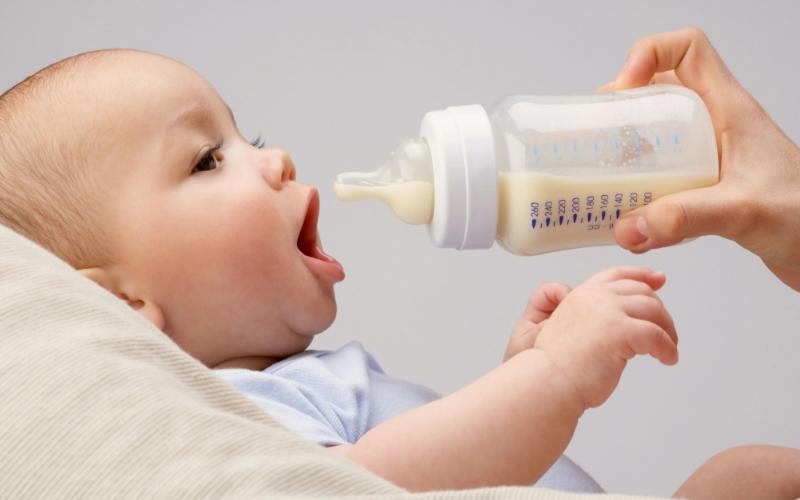Opportunities and Challenges of Livestock Eurointegration in the Republic of Moldova and Ukraine, Hanna Lavreniuk
On November 13, 2024, as part of EuroTier-2024 (Germany), the International Conference "Opportunities and Challenges of Livestock Eurointegration in the Republic of Moldova and Ukraine" took place.

Organizers:
The conference was organized by DLG, the German-Ukrainian Agri-Policy Dialogue, and the German-Moldovan Agri-Policy Dialogue, with support from the Federal Ministry of Food and Agriculture of Germany.
The initiation of negotiations for European Union membership has marked a significant milestone for both the Republic of Moldova and Ukraine. Future eurointegration requires the full implementation of EU regulations and practices. However, livestock farms within the EU believe that the requirements of the new Agrarian Policy-2030 and the Green Deal provisions push them to the brink of survival. They hope the new European Commission will adjust these requirements to strike a balance between maintaining farmers’ profitability and developing suitable financial support instruments for them. As Olga Hunger, Regional Director of the DLG International Agricultural Association for Eastern Europe, emphasized, "It is crucial to listen to and consider the perspectives of candidate countries in this process."
Under the moderation of Maria Yaroshko, Director of APD, the conference brought together representatives from the agricultural ministries of Germany, Moldova, and Ukraine, the Agricultural Committee of the Verkhovna Rada of Ukraine, and representatives of leading livestock associations from both Ukraine and Moldova.
Key Points by Hanna Lavreniuk:
Hanna Lavreniuk, General Director of the AVM (Association of Dairy Producers), participated in the panel discussion, addressing questions about changes in dairy farming amidst the war, the challenges farms are overcoming, their readiness for eurointegration, and the support needed along the way.
"The war has caused devastating losses. Over 100 dairy farms in Ukraine have either been destroyed or rendered inoperable due to Russia's tactics of terror. Restoring these facilities is critical for ensuring stable milk production. At the same time, despite the ongoing war, industrial dairy farms are continuing to invest in productivity and compliance with European standards for safety and quality. In 2024, dairy farms will deliver a 6% increase in milk supply for food processing. This reflects not just productivity but the resilience of our producers who are ensuring food security under the toughest conditions."
Lavreniuk noted that the war has accelerated innovation, with Ukrainian producers making significant investments in biogas plants to supply themselves and their communities with electricity. However, this new challenge requires technical expertise and financial support.
She further highlighted a severe labor shortage in the agricultural sector, describing it as a "personnel famine." The high turnover of workers necessitates rapid training and qualification upgrades to meet European standards, which she identified as a top priority.
Financial Support is Crucial
Lavreniuk emphasized the urgent need for substantial financial assistance.
"Our farmers critically need financial support for restoration and development, including investments in new technologies and modernization of production processes. We call for consistency and perseverance in this effort, as in the end, justice and the rule of law—not the rule of force—must prevail. This is essential for ensuring safety and security for all nations worldwide," she concluded.
Source
The conference was organized by DLG, the German-Ukrainian Agri-Policy Dialogue, and the German-Moldovan Agri-Policy Dialogue, with support from the Federal Ministry of Food and Agriculture of Germany.
The initiation of negotiations for European Union membership has marked a significant milestone for both the Republic of Moldova and Ukraine. Future eurointegration requires the full implementation of EU regulations and practices. However, livestock farms within the EU believe that the requirements of the new Agrarian Policy-2030 and the Green Deal provisions push them to the brink of survival. They hope the new European Commission will adjust these requirements to strike a balance between maintaining farmers’ profitability and developing suitable financial support instruments for them. As Olga Hunger, Regional Director of the DLG International Agricultural Association for Eastern Europe, emphasized, "It is crucial to listen to and consider the perspectives of candidate countries in this process."
Under the moderation of Maria Yaroshko, Director of APD, the conference brought together representatives from the agricultural ministries of Germany, Moldova, and Ukraine, the Agricultural Committee of the Verkhovna Rada of Ukraine, and representatives of leading livestock associations from both Ukraine and Moldova.
Key Points by Hanna Lavreniuk:
Hanna Lavreniuk, General Director of the AVM (Association of Dairy Producers), participated in the panel discussion, addressing questions about changes in dairy farming amidst the war, the challenges farms are overcoming, their readiness for eurointegration, and the support needed along the way.
"The war has caused devastating losses. Over 100 dairy farms in Ukraine have either been destroyed or rendered inoperable due to Russia's tactics of terror. Restoring these facilities is critical for ensuring stable milk production. At the same time, despite the ongoing war, industrial dairy farms are continuing to invest in productivity and compliance with European standards for safety and quality. In 2024, dairy farms will deliver a 6% increase in milk supply for food processing. This reflects not just productivity but the resilience of our producers who are ensuring food security under the toughest conditions."
Lavreniuk noted that the war has accelerated innovation, with Ukrainian producers making significant investments in biogas plants to supply themselves and their communities with electricity. However, this new challenge requires technical expertise and financial support.
She further highlighted a severe labor shortage in the agricultural sector, describing it as a "personnel famine." The high turnover of workers necessitates rapid training and qualification upgrades to meet European standards, which she identified as a top priority.
Financial Support is Crucial
Lavreniuk emphasized the urgent need for substantial financial assistance.
"Our farmers critically need financial support for restoration and development, including investments in new technologies and modernization of production processes. We call for consistency and perseverance in this effort, as in the end, justice and the rule of law—not the rule of force—must prevail. This is essential for ensuring safety and security for all nations worldwide," she concluded.
Source









